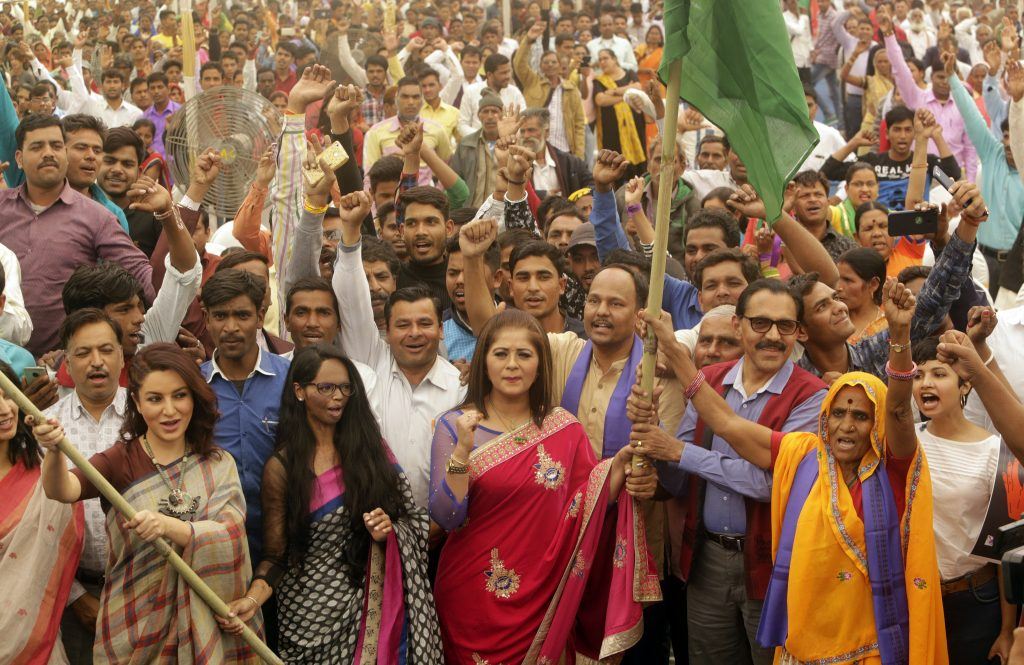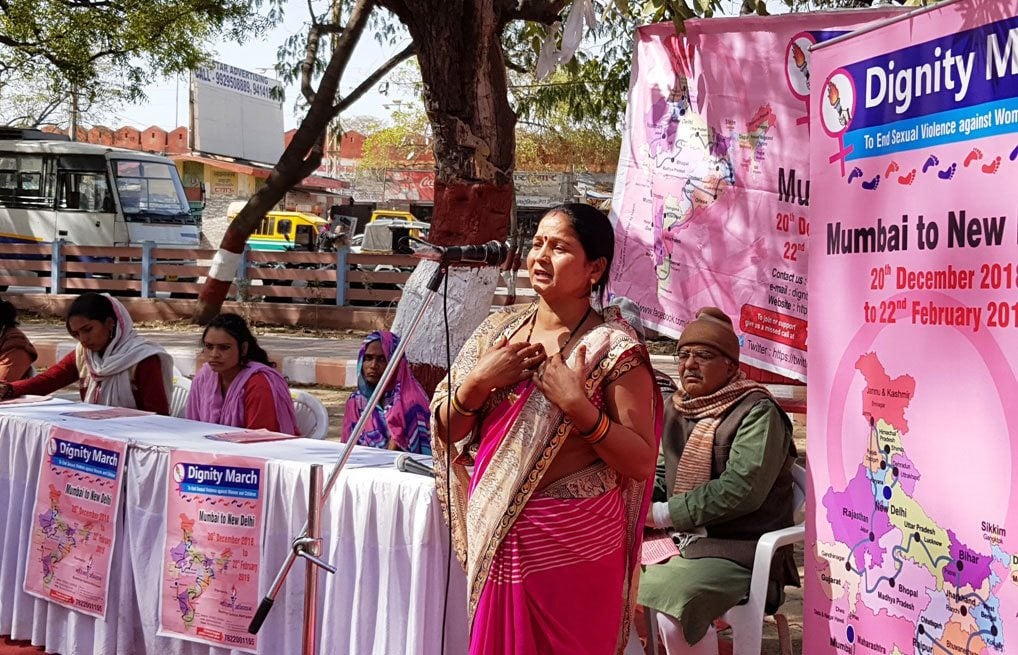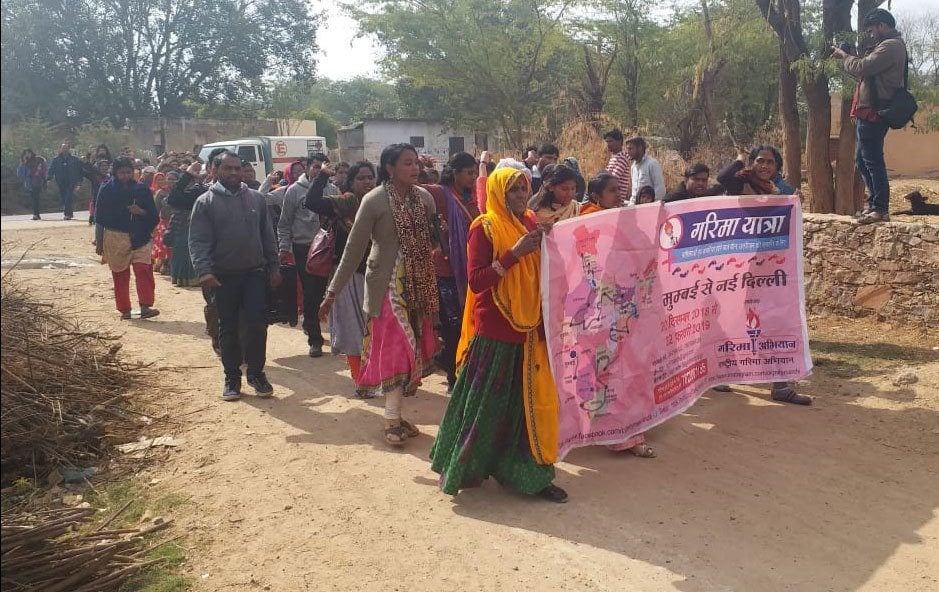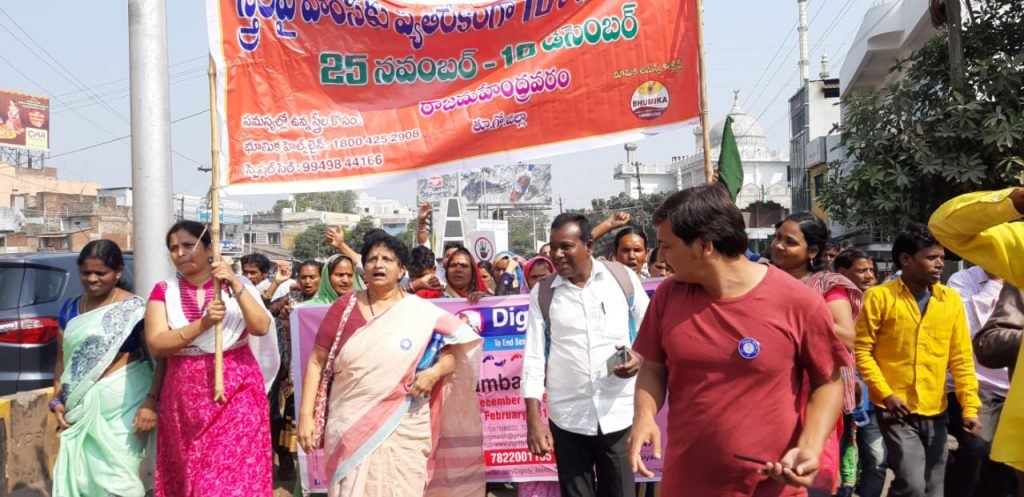
Sexual violence survivors and their friends and family have been making headlines across India since December, when about 5,000 of them began a 6,000-mile journey across 24 states. The “Dignity March,” which concludes this Friday in Delhi, aims to raise public awareness of the sexual violence that affects an untold number of women and children across the country.
It’s rare for survivors of sexual violence in India to talk openly about their experiences. A recent report estimated that 99 percent of rape and sexual assault cases in India go unreported. According to staff from Bhumika Women’s Collective, one of several AJWS grantees across India supporting the Dignity March, that’s because survivors face public shaming for the crimes committed against them.

Unfortunately, a blame-the-victim mentality has remained commonplace in many countries—including the United States. But the stigma surfaces in uniquely harmful ways in India.
“If a woman is raped, the entire family’s name is spoiled, and it continues for generations,” Prasanthi Polaverapu, director of Bhumika, said. “The caste system and patriarchal values … are the main reasons behind shaming the victim.”
Take, for example, the well-known story of Bhanwari Devi. In 1992, Bhanwari—who belongs to a traditionally lower-caste community, Kumhar—worked with a government-sponsored campaign to reduce child marriage in Rajasthan. After she attempted to stop the marriage of a 9-month-old girl from the far more affluent Gujjar caste, Bhanwari and her husband were attacked by five Gujjar men. Two of them restrained her husband, while the rest took turns raping Bhanwari.

Her attempts to report the crime didn’t go well. A judge declared that a man from an upper caste could not rape a woman like Bhanwari because she was “untouchable.”
But her story sparked debate across India about how sexual violence cases should be handled, and it ultimately led to new laws banning sexual harassment in the workplace. Nearly a quarter-century after the attack, Bhanwari continues to demand justice. She is among the many rape survivors joining the Dignity March.
Prasanthi said the initiative seems to be inspiring a shift in the approach of Indian journalists, who have often treated rape as sensational news and reported on it in with little empathy for the victims. Some reporters covering the Dignity March are hearing directly from survivors of sexual violence for the first time.
A lack of appropriate police response is a common theme among their stories. Like Bhanwari, many women who tried to report crimes of sexual violence later described mistreatment by police and “rubbish questions” that implied the victims were somehow mistaken or at fault. Law enforcement rarely followed up with a fair investigation.

“It’s very difficult for a rape survivor in a police station,” Prasanthi said. “They face humiliation … But they [the police] should respond positively, and they should respond immediately.”
“We don’t need more laws,” she added. “We need to make the laws work.”
To support the Dignity March—which is managed nationwide by Rashatriya Garima Abhiyan—Bhumika organized rallies, press conferences and educational events in Andhra Pradesh and Hyderabad.
Bhumika also runs regular programs that aim to reduce sexual violence or help survivors connect to the support they need. These include a toll-free hotline for women experiencing any kind of abuse, groups where young men and women learn about a variety of issues related to gender equality, and special trainings for police and judges. So far, Bhumika has trained more than 2,000 police personnel at a national law enforcement training academy in Hyderabad.
Prasanthi said the Dignity March has emerged from decades of important groundwork laid by women’s rights activists in India.
“They started talking about ‘the personal is political,’” she said. “More and more started to speak about the violence they are facing.
“Many times, they [survivors] become volunteers to support others. Always, they are our motivation … strong, sensitized and brave women who can change the world.”
 Elizabeth Daube is a Senior Communications Officer at AJWS.
Elizabeth Daube is a Senior Communications Officer at AJWS.


